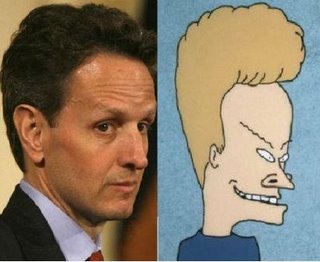You can count me among those who believe that the non-stop Republican Presidential debates are working to President Obama’s advantage. How many times have you heard some television news commentator remark that “the big winner of last night’s Republican debate was Barack Obama”? As Julianna Goldman reported for Bloomberg BusinessWeek, two recent polls have revealed that Obama is no longer looking quite as bad as he did a few months ago:
Forty-nine percent of Americans approve of how Obama is handling his job, according to an ABC News/Washington Post poll and another conducted for CNN. The rate was the highest in both surveys since a short-lived bump the president got following the killing of al-Qaeda leader Osama bin Laden in May.
Nevertheless, there is an unstoppable wave of criticism directed against the President by his former supporters as well as those disgusted by Obama’s subservience to his benefactors on Wall Street. In my last posting, I discussed Bill Black’s rebuttal to President Obama’s most recent attempt to claim that no laws were broken by the banksters who caused the 2008 financial crisis.
The wave of disgust at Obama’s exoneration of the financial fraudsters has gained quite a bit of momentum since that outrageous remark appeared on the December 11 broadcast of 60 Minutes. Matt Taibbi of Rolling Stone focused on the consequences of this level of dishonesty:
What makes Obama’s statements so dangerous is that they suggest an ongoing strategy of covering up the Wall Street crimewave. There is ample evidence out there that the Obama administration has eased up on prosecutions of Wall Street as part of a conscious strategy to prevent a collapse of confidence in our financial system, with the expected 50-state foreclosure settlement being the landmark effort in the cover-up, intended mainly to bury a generation of fraud.
* * *
In other words, Geithner and Obama are behaving like Lehman executives before the crash of Lehman, not disclosing the full extent of the internal problem in order to keep investors from fleeing and creditors from calling in their chits. It’s worth noting that this kind of behavior – knowingly hiding the derogatory truth from the outside world in order to prevent a run on the bank – is, itself, fraud!
* * *
The problem with companies like Lehman and Enron is that their executives always think they can paper over illegalities by committing more crimes, when in fact all they’re usually doing is snowballing the problem so completely out of control that there’s no longer any chance of fixing things, thereby killing the only chance for survival they ever had.
This is exactly what Obama and Geithner are doing now. By continually lying about the extent of the country’s corruption problems, they’re adding fraud to fraud and raising such a great bonfire of lies that they probably won’t ever be able to fix the underlying mess.
John R. MacArthur, president and publisher of Harper’s Magazine, caused quite a stir on December 14, when an essay he wrote – entitled, “President Obama Richly Deserves to Be Dumped” – was published by the The Providence Journal (Rhode Island). For some reason, this article does not appear at the newspaper’s website. However, you can read it in its entirety here. MacArthur began the piece by highlighting criticism of Obama by his fellow Democrats:
Most prominent among these critics is veteran journalist Bill Moyers, whose October address to a Public Citizen gathering puts the lie to our barely Democratic president’s populist pantomime, acted out last week in a Kansas speech decrying the plight of “innocent, hardworking Americans.” In his talk, Moyers quoted an authentic Kansas populist, Mary Eizabeth Lease, who in 1890 declared, “Wall Street owns the country.. . .Money rules.. . .The [political] parties lie to us and the political speakers mislead us.”
A former aide to Lyndon Johnson who knows politics from the inside, Moyers then delivered the coup de grace: “[Lease] should see us now. John Boehner calls on the bankers, holds out his cup, and offers them total obeisance from the House majority if only they fill it. Barack Obama criticizes bankers as fat cats, then invites them to dine at a pricey New York restaurant where the tasting menu runs to $195 a person.”
* * *
What’s truly breathtaking is the president’s gall, his stunning contempt for political history and contemporary reality. Besides neglecting to mention Democratic complicity in the debacle of 2008, he failed to point out that derivatives trading remains largely unregulated while the Securities and Exchange Commission awaits “public comment on a detailed implementation plan” for future regulation. In other words, until the banking and brokerage lobbies have had their say with John Boehner, Max Baucus, and Secretary of the Treasury Tim Geithner. Meanwhile, the administration steadfastly opposes a restoration of the Glass-Steagall Act, the New Deal law that reduced outlandish speculation by separating commercial and investment banks. In 1999, it was Summers and Geithner, led by Bill Clinton’s Treasury Secretary Robert Rubin (much admired by Obama), who persuaded Congress to repeal this crucial impediment to Wall Street recklessness.
I have frequently discussed the criticism directed at Obama from the political Center as well as the Left (see this and this). I have also expressed my desire to see Democratic challengers to Obama for the 2012 nomination (see this and this). In the December 20 edition of The Chicago Tribune, William Pfaff commented on John R. MacArthur’s above-quoted article, while focusing on the realistic consequences of a Democratic Primary challenge to Obama’s nomination:
John MacArthur’s and Bill Moyers’ call for the replacement of Barack Obama as the Democratic presidential candidate next year is very likely to fail, and any Democratic replacement candidate is likely to lose the presidency. As a veteran Democratic Party activist recently commented, this is the sure way to elect “one of those idiots” running for the Republican nomination. Very likely he is right.
However, the two may have started something with interesting consequences. Nobody thought Sen. McCarthy’s challenge was anything more than a futile gesture. Nobody foresaw the assassinations and military defeat to come, or the ruin of Richard Nixon. Nobody knows today what disasters may lie ahead in American-supervised Iraq, or in the dual war the Pentagon is waging in Afghanistan and Pakistan. The present foreign policy of the Obama government is fraught with risk.
As for the president himself, the objection to him is that his Democratic Party has become a representative of the same interests as the Republican Party. The nation cannot bear two parties representing plutocratic power.
The current battle over the payroll tax cut extension reminded me of a piece I wrote last August, in which I included Nate Silver’s observation that it was President Obama’s decision to leave the issue of a payroll tax cut extension “on the table” during the negotiations on the debt ceiling bill. My thoughts at that time were similar to William Pfaff’s above-quoted lament about the nation’s “two political parties representing plutocratic power”:
As many observers have noted, the plutocracy has been able to accomplish much more with Obama in the White House, than what would have been achievable with a Republican President. This latest example of a bipartisan effort to trample “the little people” has reinforced my belief that the fake “two-party system” is a sideshow – designed to obfuscate the insidious activities of the Republi-Cratic Corporatist Party.
It’s nice to see that the tsunami of disgust continues to flow across the country.



